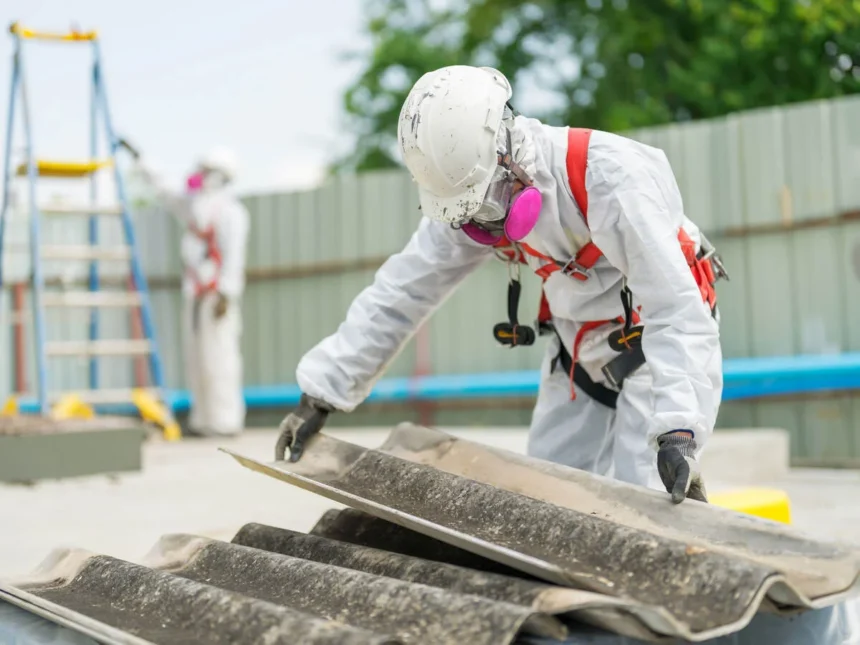In today’s dynamic landscape of workplace safety and environmental regulations, the importance of asbestos testing services cannot be overstated. Especially in a bustling metropolis like London office buildings, commercial spaces, and residential properties abound, ensuring the safety of occupants and compliance with stringent regulations is paramount.
Asbestos, once hailed for its versatility and durability, has now become synonymous with health risks and regulatory challenges. To navigate these complexities effectively, businesses, property owners, and individuals must understand the significance of asbestos testing services in safeguarding human health and mitigating legal liabilities.
Understanding Asbestos:
To comprehend the critical role of asbestos testing services, one must first understand the nature of asbestos itself. Asbestos is a naturally occurring mineral known for its heat resistance, strength, and insulating properties, making it an attractive choice for various industrial applications. Historically, asbestos found its way into a myriad of products, including insulation, roofing materials, floor tiles, and automotive parts, due to its affordability and efficacy.
Inhalation of asbestos fibers can lead to severe respiratory conditions such as mesothelioma, lung cancer, and asbestosis. What makes asbestos particularly insidious is its latency period, with symptoms often taking years or even decades to manifest after initial exposure. This delayed onset complicates diagnosis and underscores the importance of proactive measures, including regular asbestos testing, to identify and mitigate risks early on.
The Role of Asbestos Testing Services:
Asbestos testing services serve as a critical line of defense against the hazards posed by asbestos-containing materials. These services encompass a range of methodologies designed to detect and analyze asbestos fibers in suspect materials accurately. Accredited testing laboratories employ advanced techniques such as polarized light microscopy (PLM) and transmission electron microscopy (TEM) to identify and quantify asbestos content with precision and reliability.
The primary objectives of asbestos testing services revolve around identification, assessment, and risk management. Trained professionals conduct thorough inspections of buildings and structures, identifying potential ACMs through visual inspection and sampling. Samples collected are then analyzed in certified laboratories to determine the presence and concentration of asbestos fibers. The results of these tests inform risk assessments, allowing stakeholders to devise appropriate strategies for managing asbestos risks effectively.
Ensuring Safety through Testing:
Effective asbestos testing is not merely about identifying the presence of asbestos but also about assessing the associated risks and implementing appropriate safety measures. Upon identification of potential ACMs, risk assessments are conducted to evaluate the likelihood of asbestos exposure and the potential health impacts on occupants or workers. Factors such as the condition of materials, extent of damage or deterioration, and proximity to occupants are taken into account in assessing the level of risk.
Based on the findings of asbestos testing and risk assessment, stakeholders can then devise tailored risk management plans to mitigate potential hazards. These plans may include a range of strategies, from encapsulation or enclosure of ACMs to complete removal and abatement. The selection of the most appropriate strategy depends on various factors, including the type and condition of materials, the occupancy of the building, and budgetary considerations.
Compliance with Regulations:
In addition to ensuring safety, compliance with asbestos regulations is a legal and ethical imperative for businesses, property owners, and individuals. Various jurisdictions have enacted stringent laws and regulations governing the handling, removal, and disposal of asbestos-containing materials. These regulations aim to protect public health and the environment by minimizing the risks associated with asbestos exposure.
Failure to comply with asbestos regulations can have serious consequences, both legally and financially. Violations of regulatory requirements may result in fines, penalties, and legal liabilities, tarnishing the reputation of businesses and exposing them to costly litigation. Moreover, non-compliance poses significant risks to human health, with potential long-term consequences for individuals exposed to asbestos fibers.
Therefore, adherence to regulatory requirements is not just a legal obligation but also a moral responsibility. By investing in asbestos testing services and ensuring compliance with applicable regulations, stakeholders demonstrate their commitment to protecting the health and well-being of occupants and workers. Moreover, proactive compliance measures enhance trust and credibility within the community, fostering a positive reputation for businesses and property owners.
Conclusion:
In conclusion, asbestos testing services play a crucial role in ensuring safety and compliance in diverse environments, particularly in bustling urban centers like London. By understanding the nature of asbestos, engaging accredited testing laboratories, and prioritizing safety through effective risk management strategies, stakeholders can mitigate the hazards posed by asbestos-containing materials and create environments that are safe and healthy for all.
Furthermore, compliance with asbestos regulations is not just a legal requirement but a moral imperative, reflecting a commitment to protecting public health and the environment. In today’s ever-evolving landscape of workplace safety and environmental responsibility, investing in asbestos testing services is not just prudent—it’s essential for safeguarding the well-being of present and future generations.


